Deck 2: Data Representation
Question
Question
Question
Question
Question
Question
Question

Unlock Deck
Sign up to unlock the cards in this deck!
Unlock Deck
Unlock Deck
1/7
Play
Full screen (f)
Deck 2: Data Representation
1
A sample distribution of variable X is as follows:
Calculate or draw each of the following for the sample distribution of X. Where possible, Use SPSS to generate the data.
a. Frequency distribution
b. Cumulative relative frequency distribution
c. Histogram (ungrouped)
d. Frequency polygon
e. Q1
f. Q2
g. Q3
h. P10 and P90
i. Box-and-whisker plot
Calculate or draw each of the following for the sample distribution of X. Where possible, Use SPSS to generate the data.
a. Frequency distribution
b. Cumulative relative frequency distribution
c. Histogram (ungrouped)
d. Frequency polygon
e. Q1
f. Q2
g. Q3
h. P10 and P90
i. Box-and-whisker plot
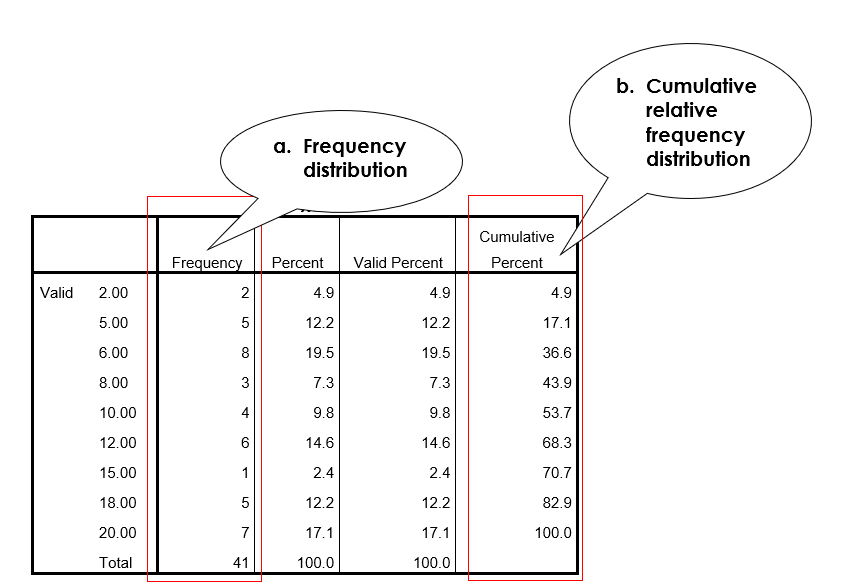
c.
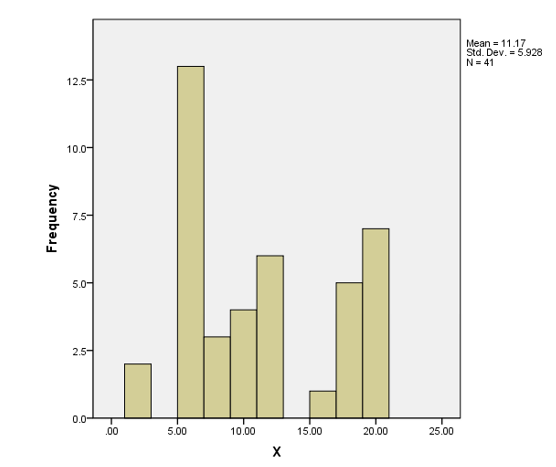
d. frequency polygon
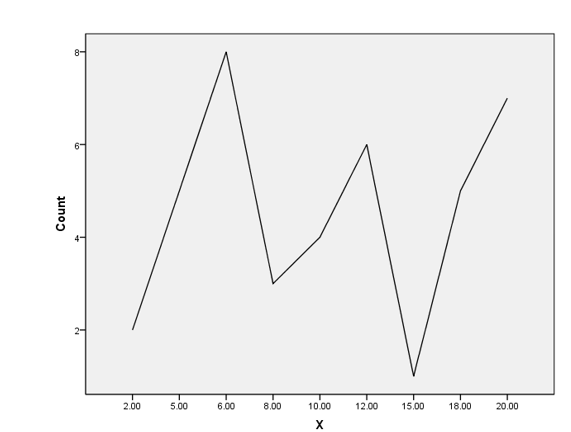
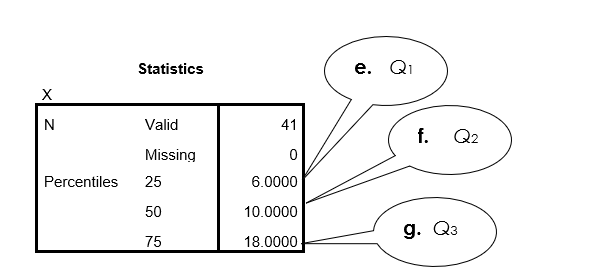 h. P10 and P90
h. P10 and P90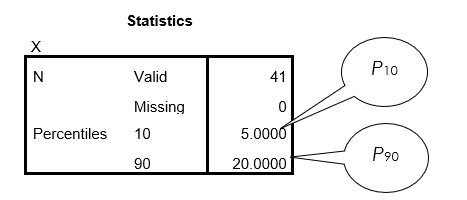 i. box-and-whisker plot
i. box-and-whisker plot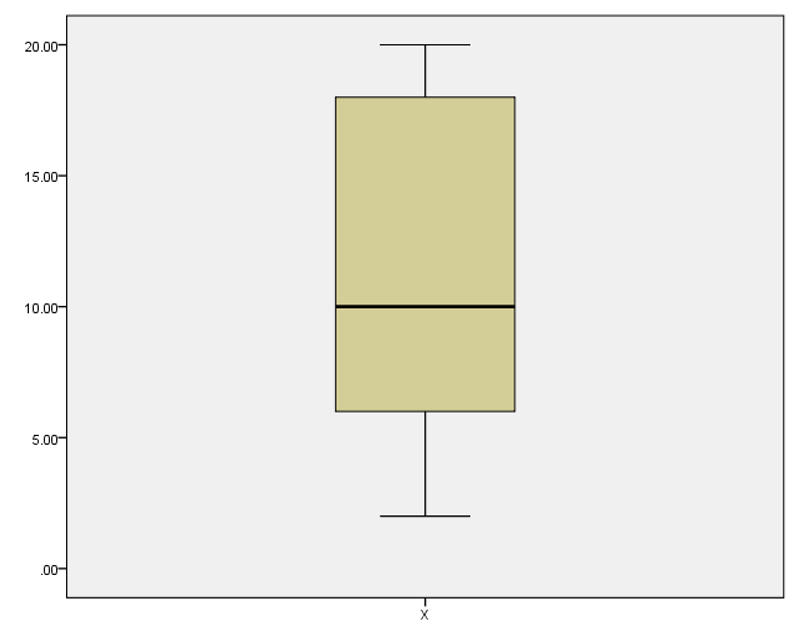
2
A sample distribution of variable X is as follows:
Calculate or draw each of the following for the sample distribution of X. Where possible, use SPSS to generate the data.
a. Frequency distribution
b. Cumulative relative frequency distribution
c. Histogram (ungrouped)
d. Frequency polygon
e. Q1
f. Q2
g. Q3
h. P10 and P90
i. Box-and-whisker plot
Calculate or draw each of the following for the sample distribution of X. Where possible, use SPSS to generate the data.
a. Frequency distribution
b. Cumulative relative frequency distribution
c. Histogram (ungrouped)
d. Frequency polygon
e. Q1
f. Q2
g. Q3
h. P10 and P90
i. Box-and-whisker plot
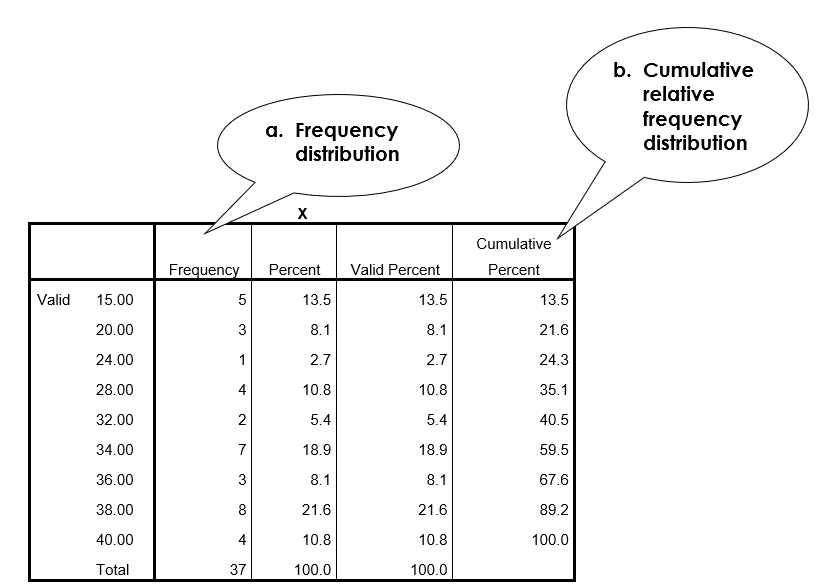
c. histogram (ungrouped)
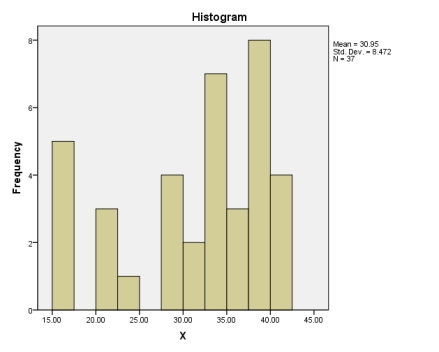
d. frequency polygon
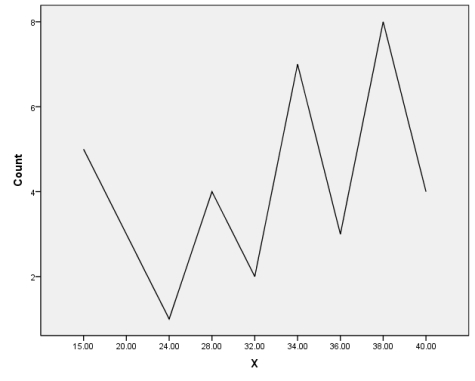
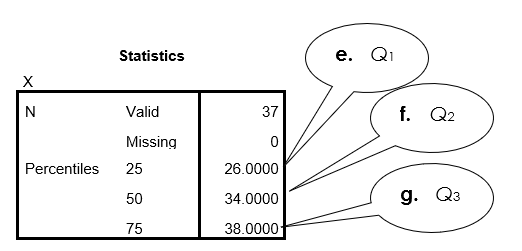
h. P10 and P90

i. box-and-whisker plot
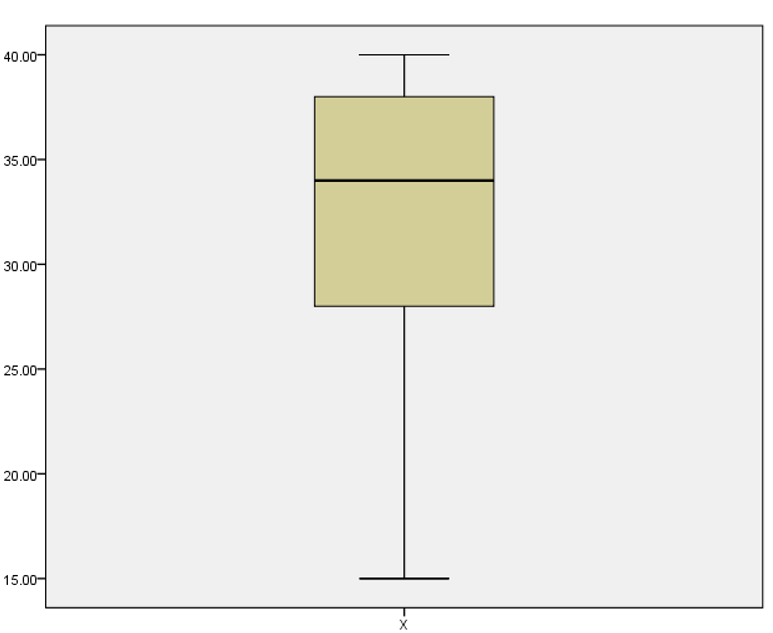
3
A sample distribution of variable X is as follows:
Calculate or draw each of the following for the sample distribution of X. Where possible, use SPSS to generate the data.
a. Frequency distribution
b. Cumulative relative frequency distribution
c. Histogram (ungrouped)
d. Frequency polygon
e. Q1
f. Q2
g. Q3
h. P10 and P90
i. Box-and-whisker plot
Calculate or draw each of the following for the sample distribution of X. Where possible, use SPSS to generate the data.
a. Frequency distribution
b. Cumulative relative frequency distribution
c. Histogram (ungrouped)
d. Frequency polygon
e. Q1
f. Q2
g. Q3
h. P10 and P90
i. Box-and-whisker plot
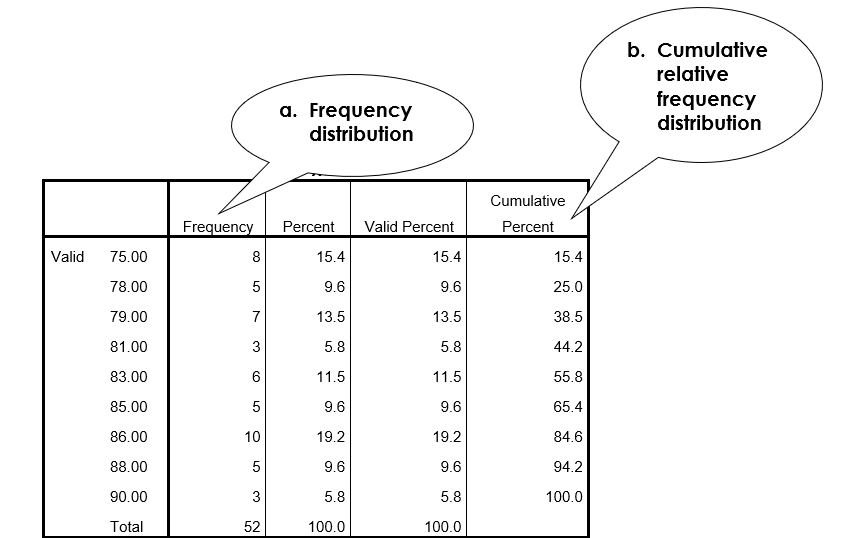
c. histogram (ungrouped)
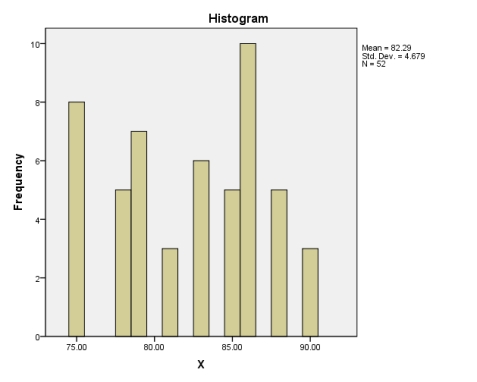
d. frequency polygon
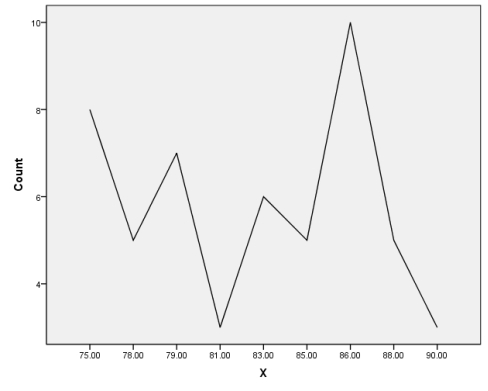
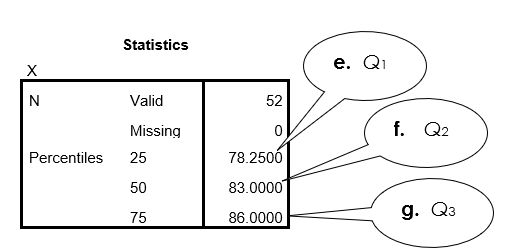
h. P10 and P90

i. box-and-whisker plot
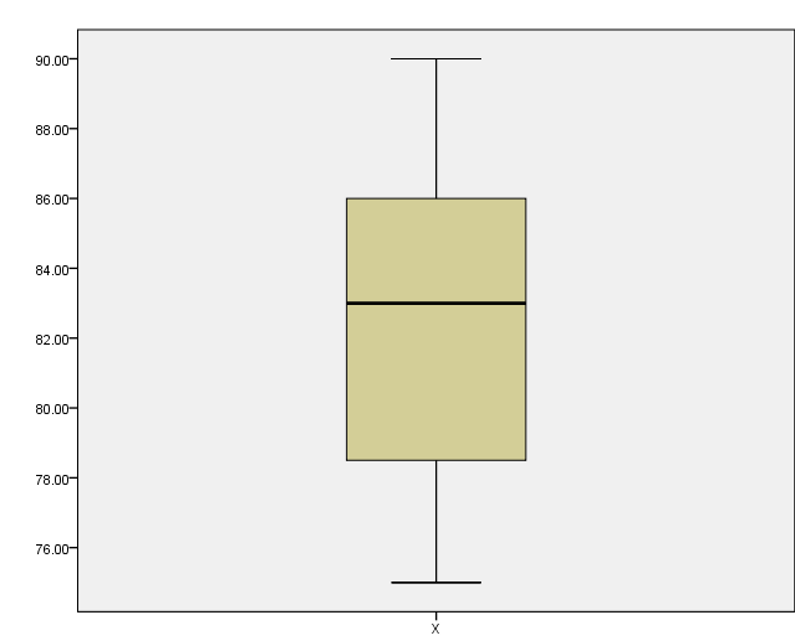
4
A sample distribution of variable X is as follows:
Calculate or draw each of the following for the sample distribution of X. Where possible, use SPSS to generate the data.
a. Frequency distribution
b. Cumulative relative frequency distribution
c. histogram (ungrouped)
d. Frequency polygon
e. Q1
f. Q2
g. Q3
h. P10 and P90
i. Box-and-whisker plot
Calculate or draw each of the following for the sample distribution of X. Where possible, use SPSS to generate the data.
a. Frequency distribution
b. Cumulative relative frequency distribution
c. histogram (ungrouped)
d. Frequency polygon
e. Q1
f. Q2
g. Q3
h. P10 and P90
i. Box-and-whisker plot

Unlock Deck
Unlock for access to all 7 flashcards in this deck.
Unlock Deck
k this deck
5
Among the following, what is the preferred method for graphing data pertaining to favorite types of dance of a sample?
A) Bar graph
B) Cumulative frequency polygon
C) Frequency polygon
D) Histogram
A) Bar graph
B) Cumulative frequency polygon
C) Frequency polygon
D) Histogram

Unlock Deck
Unlock for access to all 7 flashcards in this deck.
Unlock Deck
k this deck
6
In examining data collected over the past ten years, researchers at Sea World find that of 1,000 first-time guests: 452 visited during the summer months; 231 visited during the fall; 104 visited during the winter; and 213 visited during the spring. What is the relative frequency for guests who visited during the spring?
A) .45
B) .23
C) .21
D) .10
A) .45
B) .23
C) .21
D) .10

Unlock Deck
Unlock for access to all 7 flashcards in this deck.
Unlock Deck
k this deck
7
Of 100 research participants, 10 are in group A, 22 in group B, 30 in group C, and 38 in group D. What is the relative frequency for participants in group D?
A) .010
B) .022
C) .030
D) .038
A) .010
B) .022
C) .030
D) .038

Unlock Deck
Unlock for access to all 7 flashcards in this deck.
Unlock Deck
k this deck


